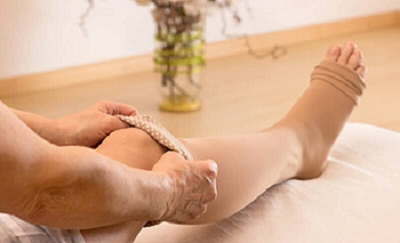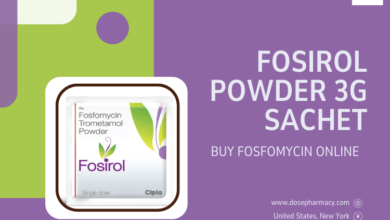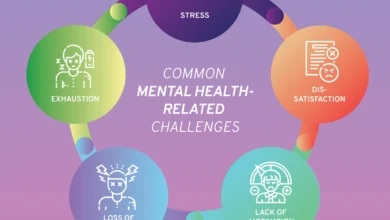What Are the Benefits of Consulting a Vein Specialist?

Vein problems such as varicose veins and spider veins can affect your health and confidence. Addressing these issues requires the expertise of a vein specialist. But what kind of doctor is a vein specialist, and why should you consider seeing one? Understanding the benefits of consulting a vein specialist will help you make informed decisions about your vascular health.
What Kind of Doctor is a Vein Specialist?
A vein specialist, also known as a phlebologist, is a medical professional who is trained specifically in diagnosing and treating conditions related to the veins. While various types of doctors can treat vein issues, a phlebologist has advanced expertise in vascular disorders.
Many vein specialists come from different medical backgrounds, including:
- Vascular Surgeons: These doctors specialize in treating diseases of the vascular system (arteries and veins). Vascular surgeons perform surgeries like vein stripping and more advanced procedures to manage vein-related problems.
- Interventional Radiologists: Interventional radiologists use imaging technology to guide minimally invasive treatments like endovenous laser therapy (EVLT) and sclerotherapy, which are commonly used for vein conditions.
- Dermatologists: In some cases, dermatologists treat minor vein conditions like spider veins using cosmetic procedures, but they generally handle surface-level issues.
Each of these doctors may treat veins, but their methods and specialties differ. It is crucial to consult a dedicated vein specialist to ensure you receive the most appropriate and effective treatment for your condition.
How Do Vein Specialists Diagnose Vein Problems?
Vein specialists use a variety of diagnostic tools to understand the root causes of vein problems. If you’re experiencing symptoms like leg swelling, pain, or visible veins, a vein specialist can conduct a thorough evaluation, including:
- Duplex Ultrasound: This is a non-invasive test that allows doctors to view blood flow and the structure of veins in your legs. It’s one of the most accurate ways to diagnose varicose veins and other venous conditions.
- Physical Examination: Your doctor will also perform a detailed examination of your legs to assess for visible signs of vein issues, such as discoloration, swelling, or the presence of bulging veins.
By combining these diagnostic methods, a vein specialist can accurately determine the cause of your vein problems and create a tailored treatment plan.
What Are the Common Treatments a Vein Specialist Provides?
Vein specialists offer a range of treatments that address both the medical and cosmetic aspects of vein problems. Some of the most common treatments include:
1. Sclerotherapy
Sclerotherapy is a popular non-surgical treatment for spider veins and small varicose veins. During the procedure, a vein specialist injects a solution directly into the affected vein, causing it to collapse and gradually fade over time. This is a relatively quick and painless procedure that can be done in an office setting.
2. Endovenous Laser Therapy (EVLT)
EVLT is a minimally invasive procedure that uses laser energy to treat larger varicose veins. A small catheter is inserted into the affected vein, and laser energy is delivered to seal the vein shut. Over time, the body reabsorbs the closed vein, and blood flow is redirected to healthy veins.
3. Radiofrequency Ablation (RFA)
Radiofrequency ablation is another minimally invasive technique used to treat varicose veins. Like EVLT, this procedure uses heat energy, but instead of lasers, it utilizes radiofrequency waves to collapse the vein. RFA is highly effective and has a fast recovery time, making it an appealing option for many patients.
4. Ambulatory Phlebectomy
This surgical procedure is used to remove larger varicose veins that are close to the surface of the skin. It’s an outpatient procedure, and a vein specialist will make small incisions to extract the problematic vein. This technique is often used in conjunction with other treatments for comprehensive vein care.
5. Compression Therapy
Compression therapy is often recommended as a conservative treatment or a complement to more advanced procedures. Patients wear compression stockings that help improve blood flow and reduce the symptoms of varicose veins. While this method doesn’t eliminate veins, it can provide significant relief from discomfort.
Why Should You See a Vein Specialist?
While general practitioners or dermatologists may be able to provide some level of care for vein problems, consulting a vein specialist ensures that your condition is treated with the most advanced and effective techniques. Here are several key reasons to see a vein specialist:
1. Expertise in Vascular Health
Vein specialists have extensive training in the vascular system, specifically in diagnosing and treating vein-related conditions. Their expertise allows them to pinpoint the cause of your problem and recommend the most effective treatment plan, which often involves the latest minimally invasive procedures.
2. Minimally Invasive Options
Thanks to advancements in medical technology, vein treatments have become less invasive and more effective. Vein specialists are at the forefront of using treatments like sclerotherapy, EVLT, and RFA that require minimal downtime and produce excellent results. You can often resume normal activities within a day or two after treatment.
3. Tailored Treatment Plans
Every patient’s condition is different, and a vein specialist can develop a customized treatment plan based on your specific symptoms, medical history, and lifestyle. This individualized approach ensures that you receive the best care possible for your unique situation.
4. Improved Quality of Life
Chronic vein problems can significantly impact your quality of life. Swollen, painful legs and unsightly veins can make daily activities uncomfortable and even embarrassing. By consulting a vein specialist and undergoing proper treatment, you can reduce symptoms, enhance your appearance, and regain confidence in your health and appearance.
5. Prevention of Complications
If left untreated, vein problems can lead to more severe health issues, such as blood clots, ulcers, or deep vein thrombosis (DVT). A vein specialist can help you avoid these complications by addressing the issue early on and implementing effective treatment solutions.
How Do You Choose the Right Vein Specialist?
Choosing the right vein specialist is essential for achieving the best outcomes. Here are a few tips for finding a reputable doctor:
1. Check Credentials
Ensure that your vein specialist is board-certified and has extensive experience in treating venous diseases. Many specialists come from backgrounds in vascular surgery, interventional radiology, or phlebology, so check their certifications and training in these areas.
2. Read Reviews and Testimonials
Online reviews and patient testimonials can provide insight into the doctor’s expertise, bedside manner, and success rates. Look for positive reviews from patients who have undergone similar treatments.
3. Consult for Treatment Options
During your consultation, ask the doctor about the available treatment options and what they recommend for your specific condition. A good vein specialist will take the time to explain the pros and cons of each option, helping you make an informed decision.
Conclusion
Consulting a vein specialist offers numerous benefits, from receiving expert care to accessing the latest minimally invasive treatments. Vein specialists, including vascular surgeons, interventional radiologists, and phlebologists, can diagnose and treat vein problems more effectively than general practitioners. By choosing the right specialist, you can alleviate discomfort, improve your appearance, and avoid complications, ensuring better vascular health for years to come.




